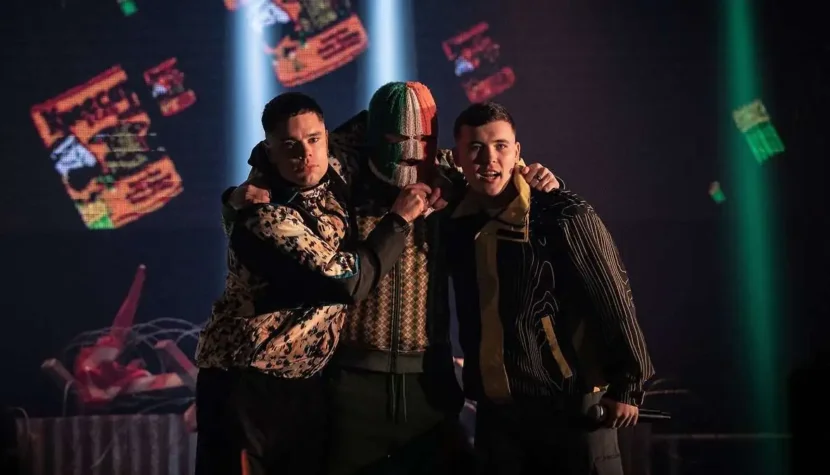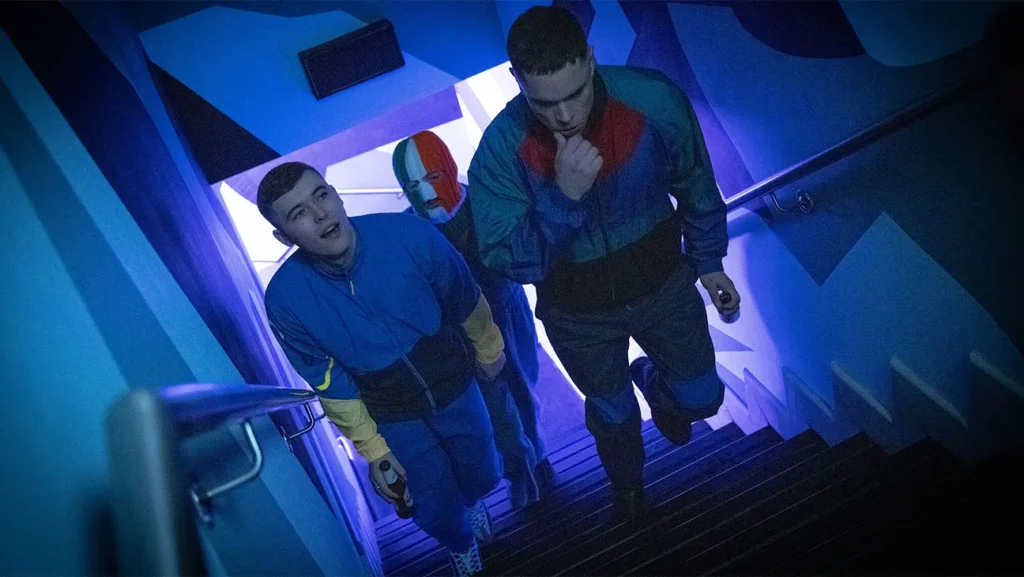KNEECAP. If Guy Ritchie Made Movies About Irish Rap

Irish cinema has been thriving in recent years, but Kneecap might be the most dazzling production from the Emerald Isle we’ve seen in a long time—or perhaps ever. A fictionalized account of a real music project, styled after early Guy Ritchie films, it delivers a powerful blend of raw rap energy and pure cinematic playfulness.
The movie opens unassumingly, with Liam narrating the story of his best friend Naoise. His humor and sharp irony set the tone for Rich Peppiatt’s film. Before long, we’re thrown into a whirlwind of roguish, irreverent action. Scenes reminiscent of Ritchie’s gangster comedies intertwine with hallucinatory drug trips evocative of Danny Boyle’s Trainspotting. Yet the antics and petty crimes of two twenty-somethings from Catholic Belfast aren’t merely for laughs—at their core lies a defiant pride in Irish national identity, instilled by Naoise’s father (played by Michael Fassbender in an exaggerated portrayal of a freedom fighter). And where does this identity find its strongest expression? In the Irish language, of course. That’s why these young rebels choose to confront “British oppression” by exclusively using their native tongue when dealing with authority—primarily, let’s be honest, the police.
However, Liam and Naoise’s linguistic rebellion soon evolves beyond hurling Irish insults at British officers. The pair have notebooks filled with Irish rhymes that no one has yet heard. A chance encounter with a musically and personally unfulfilled teacher in his forties leads to the formation of Kneecap. The project quickly becomes a local sensation, gaining wider fame with each performance. Their unique trio attracts attention not only from the police but also from local gangsters. What began as a garage experiment grows into something far beyond what any of them anticipated. Where will their rebellious music aimed at the “British invaders” ultimately take them?

One of Kneecap’s greatest strengths is Peppiatt’s ability to maintain momentum throughout the film. After a bold and irony-laden opening, it would’ve been easy to lose steam—but that’s not the case here. Thanks to the incredible charisma of the two lead “actors” (let’s be honest, they’re not trained actors), it’s impossible not to root for these wild rebels, even when their actions are questionable—like their penchant for drugs. Liam, performing under the stage name Mo Chara, shines as a born showman. His portrayal seems inspired by Taron Egerton’s Eggsy in the first two Kingsman films: the same rebellious spirit, sharp wit, and sheer determination. But the spotlight isn’t reserved solely for the rapper duo. The hilariously awkward DJ Próvai, initially worried about losing his teaching job but later diving headfirst into the rap game, also gets his time to shine—and he makes the most of it.
Kneecap\isn’t a revolution in cinematic terms—it doesn’t upend any genres or introduce groundbreaking formal or narrative innovations. Its real value lies in how it creatively draws from familiar formulas without simply copying them. The result is a musical-comedy-rebellion with extraordinary impact, amplified by energetic beats and charismatic rap. And it wouldn’t be an exaggeration to call it one of the best films of 2024.

